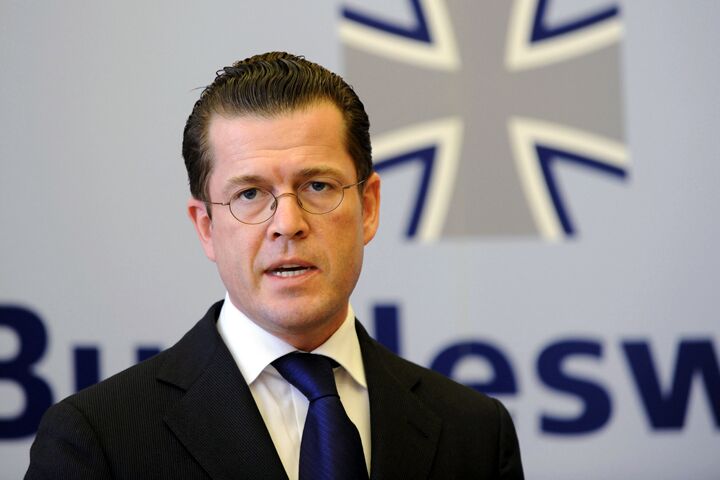
Germany: Defense Minister Seeks to Overhaul Military
Germany’s defense minister has announced plans for a structural reform of the German military that would improve the effectiveness of the country’s armed forces.
Karl-Theodor zu Guttenberg explained on Monday that the Bundeswehr is currently able to deploy only 7,000 to 9,000 of its 247,000 troops because the lion’s share of them are needed either at domestic posts or as relief for soldiers already on international missions. Under the new framework, the military would be streamlined, and more German soldiers would be freed up for overseas missions.
“The aim is not to reinvent the Bundeswehr,” the minister said. “In particular, it is about optimizing the personal and financial resources at our disposal.”
Since the end of the Cold War, reforms have been put into place that have downsized the German military, but Guttenberg said these modifications have not been entirely successful. He backed his words by appointing a new Bundeswehr commission to improve the efficiency of command lines, procurement and structures of the German armed forces. The commission is to finalize its proposals by the end of the year.
Guttenberg also spoke in favor of constant updates to German weaponry and equipment, particularly for troops based in Afghanistan, according to Germany’s Local. Responding to criticism about insufficient equipment contributing to the April 2 death of three soldiers in Kunduz, Guttenberg said Bundeswehr forces in Afghanistan will receive up to 200 new armored vehicles this year.
“We must always optimize,” Guttenberg said. “It’s a constant process.”
The latest three deaths bring the total number of German soldiers killed in the nato-led mission to 39 since the invasion in 2001.
During a memorial service for the soldiers, Guttenberg violated a political taboo by referring to Germany’s military involvement in Afghanistan as a “war.”
“What we experienced on Good Friday would understandably be called ‘war’ by most people—and me too,” said Guttenberg. He gave a touching testimonial to the soldiers, with language rarely used in postwar Germany: “I was trying to explain my sorrow to my daughter on Good Friday and she asked me if the three young men were ‘courageous heroes’ of our country and whether it was okay to be proud of them,” said Guttenberg, fighting back tears.
“I answered both questions, not politically, but instead simply with ‘yes,’” he said.
Officially, German leaders maintain that “German foreign policy is a peace policy.” But the reality is that, during the last two decades, the Bundeswehr has been propelled into a new era. Its first experiences with large-scale deployment came in the Balkans during the late 1990s. The current Afghanistan conflict represents new challenges and broader opportunities for the German military and the ambitious young defense minister at its helm.
These scheduled reforms, and this bolder language are evidence that Germany is undergoing a rapid and dangerous transformation of its foreign policy. The whole world will be greatly affected by its steadily morphing shape. Expect the military empowerment of Germany and its proxy, the European Union, to continue to make great strides of growth. To understand more about this alarming trend and why it ultimately points to the greatest hope this world could ever know, read Germany and the Holy Roman Empire.
